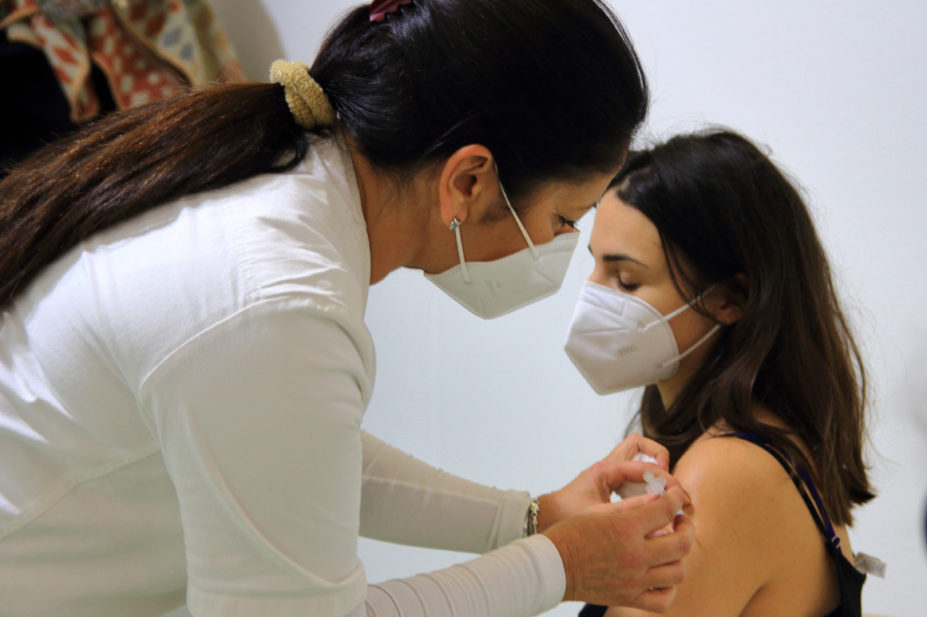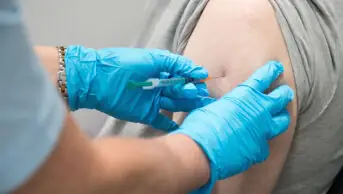
Shutterstock.com
Open access article
The Royal Pharmaceutical Society has made this article free to access in order to help healthcare professionals stay informed about an issue of national importance.
To learn more about coronavirus, please visit: https://www.rpharms.com/resources/pharmacy-guides/wuhan-novel-coronavirus
The risk of patients developing a rare blood clot is “several times higher” in COVID-19 infections than after receiving any of the current COVID-19 vaccines, a study from the University of Oxford has suggested.
The study compared the number of cerebral venous thrombosis (CVT) cases diagnosed within two weeks of a patient either receiving their first dose of a COVID-19 vaccine or a COVID-19 diagnosis.
These figures were compared to the level of CVT following influenza infection, and also the baseline level in the general population.
Some 513,284 confirmed COVID-19 cases, and 489,871 people receiving a COVID-19 vaccine, were included in the study.
Among the patients with COVID-19, CVT was found to have occurred at a rate of 39 in 1 million patients.
This is 8–10 times higher than the risk associated with the COVID-19 vaccines currently in use, where CVT occurred in 4 in 1 million people who received one of the mRNA vaccines and in 5 in 1 million people who received the first dose of the Oxford/AstraZeneca vaccine.
Compared to the baseline level, the risk of CVT following COVID-19 diagnosis was approximately 100 times greater.
The findings are in line with the latest summary of Yellow Card reporting, published by the Medicines and Healthcare products Regulatory Agency (MHRA) on 15 April 2021.
It said the MHRA had received 100 reports of cases of blood clots with concurrent low platelet counts in the UK, following vaccination with the Oxford/AstraZeneca vaccine, “giving an overall case incidence of 4.9 per million doses”.
The researchers at the University of Oxford said it was not possible to say that the mRNA vaccines studied are “associated with an increased risk of CVT; far larger samples are needed to address this question”.
They added that the relative risks should be interpreted with caution, as the cohorts were not matched for age or other demographic factors, and more data still need to be gathered.
Paul Harrison, professor of psychiatry and head of the translational Neurobiology Group at the University of Oxford, said that the study had allowed them to reach “two important conclusions”.
“Firstly, COVID-19 markedly increases the risk of CVT, adding to the list of blood clotting problems this infection causes,” he said.
“Secondly, the COVID-19 risk is higher than seen with the current vaccines, even for those under 30; something that should be taken into account when considering the balances between risks and benefits for vaccination”.
READ MORE: PJ view: There is no cause for alarm around the safety of COVID-19 vaccines


